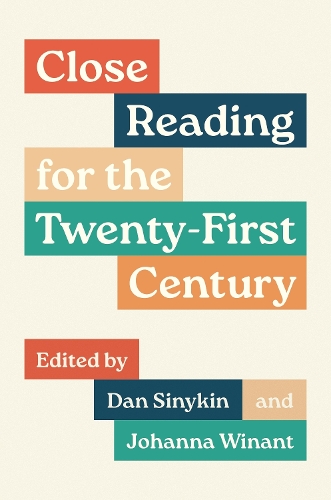
Close Reading for the Twenty-First Century
(Paperback)
Available Formats
Publishing Details
Close Reading for the Twenty-First Century
By (Author) Dan Sinykin
By (author) Johanna Winant
Princeton University Press
Princeton University Press
28th January 2026
United States
Classifications
Children
Non Fiction
Educational: Language, literature and literacy
Language learning: reading skills
Literary reference works
Physical Properties
Paperback
288
Width 156mm, Height 235mm
Description
A user's guide to the fundamental practice of literary studies, providing context, examples, and practical exercises
Close reading-making an argument based in close attention to a text-is the foundation of literary studies. This book offers a guide to close reading, treating it as a skill that can be taught and practiced. It first explains what close reading is, what it does, and how it has been used across theoretical schools ranging from affect studies to Black studies to queer theory to Marxism. It then presents a series of master classes in the practice, with original contributions by scholars from a range of different institutions. Finally, it provides practical materials, worksheets, and suggested activities for instructors to use in the classroom. The tone throughout is encouraging and accessible, inviting readers of all backgrounds to hone their craft.
The book divides the practice of close reading into five steps, coining a term for each step: scene setting, noticing, local claiming, regional argumentation, and global theorizing. It traces the roots of close reading, showing how it has spread far beyond its origins in practical criticism and New Criticism. In twenty-one short chapters, contemporary scholars discuss close readings by such prominent literary critics as Erich Auerbach and Helen Vendler, describing how their arguments work and how to achieve similar results. An essential resource for instructors and students at the undergraduate level and beyond, this book shows how understanding close reading can make us better readers, thinkers, and writers.
Author Bio
Dan Sinykin is associate professor of English at Emory University and the author of Big Fiction: How Conglomeration Changed the Publishing Industry and American Literature. Johanna Winant is assistant professor of English at West Virginia University and the author of Lyric Logic.
